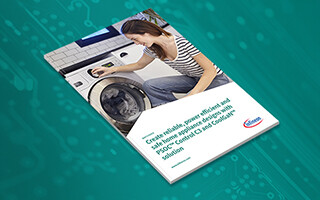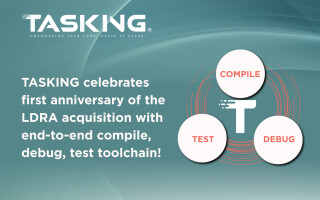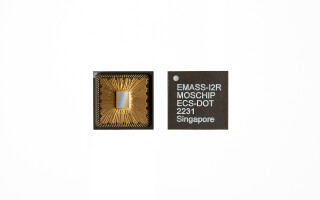Infineon and Oxford Ionics Collaborate on the Development of Trapped Ion Quantum Processors
July 12, 2022
News

Oxford Ionics and Infineon Technologies AG have announced a collaboration to develop high-performance, fully integrated quantum processing units (QPUs). Oxford Ionics' unique electronic qubit control (EQC) technology, combined with Infineon's world-leading engineering and manufacturing capabilities, as well as quantum technology expertise, will lay the groundwork for the industrial production of QPUs with hundreds of qubits within the next five years. The goal is to transition quantum computing technology from the research lab to real-world applications.
For many industries seeking radical improvements in their processes and capabilities, quantum computing opens up the next frontier in computing power.To get there, qubit technologies that can be built on a massive scale while controlling an increasing number of qubits and maintaining quantum error levels at or below the current state-of-the-art are required. The EQC technology from Oxford Ionics provides a path to integrating trapped ion qubits - the leading qubit technology in terms of quantum error levels - into Infineon's mature semiconductor processes.
“The great challenge in quantum computing is scaling whilst improving performance”, said Chris Ballance, Co-Founder of Oxford Ionics. “There are technologies that can be fabricated at scale but don't perform, and there are technologies that perform but don't scale. Our electronic control is uniquely placed to do both. Working with Infineon and its mature and flexible semiconductor process, allows us to speed up the accessibility of a commercial QPU. Due to our market-leading error rates, these processors need dramatically fewer qubits to solve useful problems than other technologies.”
By the end of 2022, the first Oxford Ionics devices will be cloud-accessible, giving commercial players access to these cutting-edge Quantum Computers. Fully integrated devices capable of scaling to hundreds of qubits are expected to be available in less than two years. Infineon and Oxford Ionics' ultimate goal is to offer individual, fully integrated QPUs with hundreds of qubits networked together into a quantum supercomputing cluster using Oxford Ionics' quantum networking technology within five years.
“The role of Infineon is to take the ground-breaking work of Oxford Ionics to scale properly towards meaningful qubit counts and low error rates. Infineon’s ion traps can enable that in conjunction with our predictable, repeatable, and reliable manufacturing and assembly capabilities,” said Stephan Schaecher, Director of New Application, Innovation, and Quantum Computing at Infineon Technologies Industrial Division.
Infineon’s Ion Trap Modules
Infineon’s ion traps accelerate the development of powerful quantum computers to solve optimization problems that their classical counterparts could not address. This research already started in 2016 at Infineon fab site in Villach to combine scientific findings with industrial-scale quantum technologies. Knowing how to industrialize and combine novel materials and technologies, Infineon offers an advanced technology platform for customized traps that are predictable, repeatable, and reliable. Based on this platform, Infineon paves the way towards thousands of qubits by working with partners on cryogenic control electronics and optics integration. This will allow scientists and companies to focus on their core tasks, push the boundaries of science and research, and create successful and winning quantum computing systems that will enable industry and academia to solve meaningful problems.
Infineon is pursuing various approaches towards quantum computing. Next to iontrap the company is also active in superconducting and semiconductor-based qubits. As a co-founder of the Quantum Technology and Application Consortium (QUTAC) Infineon drives the topic from technology to usable application.
More information is available at infineon.com and oxionics.com.





